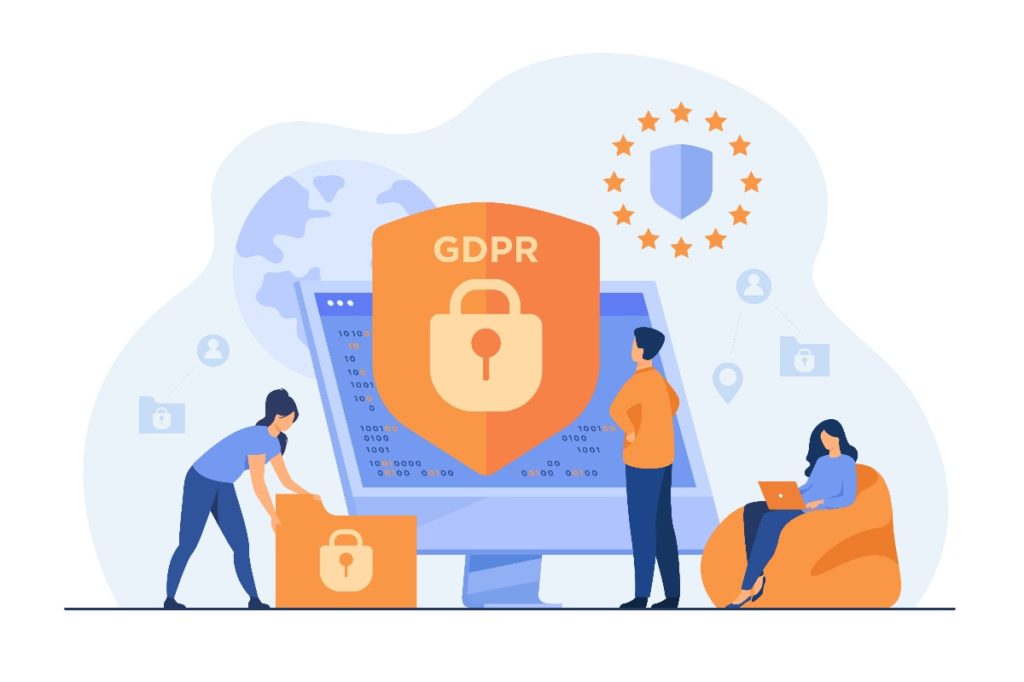Now Reading: The Impact of Data Privacy Regulations (e.g., GDPR, CCPA) on Digital Marketing Practices in the US
-
01
The Impact of Data Privacy Regulations (e.g., GDPR, CCPA) on Digital Marketing Practices in the US

The Impact of Data Privacy Regulations (e.g., GDPR, CCPA) on Digital Marketing Practices in the US
Keyword: Data Privacy
Introduction

Data privacy regulations, such as the General Data Protection Regulation (GDPR) in Europe and the California Consumer Privacy Act (CCPA) in the United States, have ushered in a new era of stringent privacy measures. These regulations significantly affect how businesses conduct digital marketing practices in the US. In this comprehensive article, we will delve into the far-reaching consequences of GDPR and CCPA on digital marketing, including changes in data collection, targeting strategies, customer engagement, compliance challenges, and the evolving landscape of data privacy in a global context.
1. Data Collection and Consent
One of the most substantial impacts of GDPR and CCPA is on data collection practices. Both regulations emphasize obtaining explicit consent from users before collecting their data. Marketers now need to ensure that their data collection methods are transparent, and users have the option to opt-out. This shift has forced businesses to rethink their strategies and be more upfront about data usage, resulting in higher-quality, consent-driven data. It has also led to a reduction in the amount of data available for marketing purposes, requiring marketers to focus on relevance over quantity.
2. Targeting and Personalization
GDPR and CCPA have challenged the way digital marketers target and personalize content. With stricter regulations on profiling and automated decision-making, marketers must tread carefully when creating personalized campaigns. While it’s still possible to deliver personalized content, it must align with users’ explicit preferences and respect their privacy choices. This shift has compelled marketers to rely on contextual targeting and first-party data, encouraging them to build more meaningful and trust-based relationships with their audience.
3. Customer Engagement and Trust
Building and maintaining trust with customers is paramount in the post-GDPR and CCPA era. Consumers are more aware of their data rights and expect companies to uphold their privacy promises. Marketers must prioritize transparency, providing clear information about data usage and security measures. Engaging customers through trust-building measures, such as ethical data handling and compliance with privacy regulations, can result in stronger brand loyalty and customer retention.
4. Compliance Challenges
Navigating the complex landscape of data privacy regulations poses significant challenges for businesses. GDPR and CCPA have introduced a plethora of legal requirements, from conducting data protection impact assessments to appointing data protection officers. Non-compliance can lead to severe fines and reputational damage. To mitigate these risks, companies must invest in compliance efforts, such as regular audits, data protection training, and robust consent management systems.
5. Cross-Border Data Transfers
For businesses operating globally, GDPR has far-reaching implications, as it applies to data transfers outside the European Union. This affects how US-based companies handle data originating from EU citizens. They must implement safeguards, like Standard Contractual Clauses (SCCs), to ensure data protection during cross-border transfers. This has led to increased complexity in managing global data flows, prompting companies to reassess their international data strategies.
6. The Evolving Landscape of Data Privacy
It’s essential to recognize that data privacy regulations are continuously evolving. New laws are being enacted, and existing ones are being updated to address the ever-changing digital landscape. For instance, the European Data Protection Board (EDPB) regularly issues guidelines and recommendations that impact how companies handle data. Staying abreast of these developments is crucial for digital marketers as they adapt to the dynamic regulatory environment.
Conclusion
In conclusion, the impact of data privacy regulations like GDPR and CCPA on digital marketing practices in the US is multifaceted and profound. These regulations have compelled marketers to adopt more transparent data collection practices, rethink their targeting strategies, prioritize customer trust, and face compliance challenges head-on. As the landscape of data privacy continues to evolve, it is crucial for businesses to stay informed, agile, and proactive in their marketing strategies.
Adapting to these regulations not only ensures legal compliance but also helps create a more responsible and customer-centric digital marketing landscape. Embracing data privacy as a core value is not only a regulatory requirement but also a key driver of long-term success in the digital age.
Also Read: Cybersecurity in the US: Protecting Critical Infrastructure and Personal Data












